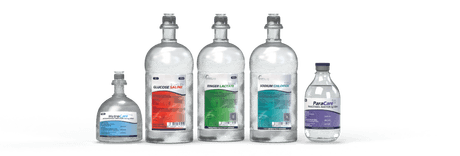What is the meaning of IV Fluids?
Intravenous (IV) fluids, also referred to as intravenous infusions, are liquids administered directly into the bloodstream through a vein, primarily used to replenish lost fluids, correct electrolyte imbalances, and deliver medications or nutrients. Types include crystalloids, colloids, and blood products, each used for different therapeutic purposes.
The type of IV fluid administered depends on the patient's medical condition and fluid requirements. Crystalloids, such as dextrose and saline solutions, are often used for fluid replacement and electrolyte balancing. Colloids, which contain larger molecules like gelatin or starch, are used when there's a need to improve blood volume rapidly. Blood products, like whole blood or plasma, are typically used in cases of significant blood loss or when specific blood components are deficient. All these IV therapies are crucial tools in a variety of medical settings, from surgery to chronic disease management.


